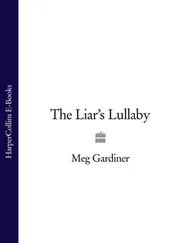The BBC broadcast a series of talks on unemployment in 1931. The speakers had included John Maynard Keynes, Seebohm Rowntree and Herbert Morrison, with the Conservative leader Stanley Baldwin winding up. These were followed by six lectures by Sir William Beveridge in which he aimed to diagnose the ‘disease of unemployment’ by tracing its origins back to before the First World War, considering whether the causes were labour or credit, and examining such symptoms as ‘social malingering’ before trying to calculate the cost of the ‘cure’. Beveridge had begun to change his mind on unemployment, moving away from the idea that its main cause was a residual section of the population that would always be unemployable for reasons of physical or moral deficiency, to an understanding of its structural nature, recognising that ‘There is not a special class or kind of people who constitute the unemployed. They come from almost every calling and have as great a variety of interests and capacities as any other member of the community. They are ordinary decent people like ourselves to whom an extraordinary misfortune has happened.’ Since this was the case, Beveridge later regretted that he had not made his talks more ‘human’. Instead of assailing his listeners with abstract notions and yards of statistics, he reflected, he should have talked more about the social consequences, how actual people were affected.
The human face of unemployment was given more prominence in a series of articles that appeared in The Listener , ‘the organ of the BBC’, and were subsequently published as a book, but never broadcast. Memoirs of the Unemployed described the psychological effects of unemployment on people’s lives, their politics and their hopes for the future. The idea had come from a similar study carried out in Marienthal, a small industrial village near Vienna, where the closure of the textile mill in 1929 had thrown almost the entire population out of work, and from a competition organised by the Institute of Social Economy in Warsaw which had resulted in the publication of fifty-seven vivid accounts sent in by the Polish unemployed.
In 1932 the ubiquitous journalist S.P.B. Mais had travelled through some of England’s lesser-known beauty spots at the behest of the BBC. His seventeen talks, subsequently published as a book, were entitled This Unknown Island . The following year the BBC commissioned Mais to give a ‘human face’ to unemployment on the radio by exploring a different sort of unknown island. This time, rather than idyllic places he visited Labour Exchanges, out-of-work clubs and settlements and other places where species unemployed might be located, talking to organisers and the unemployed themselves, ‘black-coated’ (now ‘white-collar’) and former rural workers, women who were either out of work themselves or were bearing the brunt of coping with no regular wage coming in. The intention of the exercise, entitled Time to Spare , was largely to give people who had no personal experience of unemployment ‘an account from the unemployed themselves of what life is like when one is out of work, what steps they take to cope with the problems of existence … since if you have never been out of work you can no more realize the horror of unemployment than you can realize the horror of leprosy … If you have never moved outside of Sussex, you can no longer visualize the destitution on the banks of the Tyne than you can visualize a tornado in Japan.’
Mais was eager to learn all he could, but he was a naïve observer. After commenting on the neatness of the women’s clothes at a female keep-fit class in Tyneside he was told tartly, ‘It’s perhaps just as well that you can’t see what they’ve got on underneath.’ Time to Spare was broadcast in early January 1933, the series introduced by the Prince of Wales. Mais called it ‘an S.O.S. message, probably the most urgent you will ever hear and it vitally concerns you. You are called upon to create an entirely new social order. The bottom has apparently fallen out of the old world in which everything was subordinated to a day’s work.’ He appealed to listeners (who were clearly not envisaged as the unemployed themselves) to rally round and ‘make yourself known to the manager of your local Labour Exchange, or if you live in a village, to the Schoolmaster or Parson’, to initiate schemes to occupy those without work.
The second series of Time to Spare , which started in April 1934, was rather less of an outsider’s view of the unemployed: this time the producer Felix Greene toured the country as Mais had, but when he found an unemployed person with a compelling story to tell, he invited him or her to Broadcasting House in London, where he got them talking and their conversation was relayed over a loudspeaker to the next room, where secretaries transcribed their words. In his introduction, Mais suggested that things had improved since the first series, but that there was no room for complacency. Indeed, the programmes caused a furore in the press, particularly since they started transmission at the same time as the final reading of the Unemployment Bill was going through the Commons. Labour MPs quoted from them (they were reprinted in The Listener) to harangue the government about the Means Test and proposals to further limit the entitlement of the unemployed to benefits.
On 5 June 1934 the Daily Herald reported: ‘Time to Spare is shattering too many illusions. Millions are being turned against the Government.’ Sir John Reith, Director General of the BBC, was summoned to 10 Downing Street to be told by Ramsay MacDonald that the series could not continue. Reith recognised that the government had the power to pull the programmes, but told MacDonald that if this were done, there would be a twenty-minute silence at the time they would have been broadcast, and it would be announced that this was because the government had ‘refused to allow the unemployed to express their view’. The series continued.
Although the Director of Talks at the BBC, Charles Siepmann, was concerned that the programmes on unemployment merely attempted to ameliorate its effects, rather than probing its possible political causes, Wal Hannington, leader of the National Unemployed Workers’ Movement (NUWM), had his request to be allowed to broadcast turned down by the BBC on the grounds that it wished to avoid controversy. Denied a voice on the airwaves, Hannington wrote a number of books castigating government policy and describing the plight of the unemployed, with such unequivocal titles as Never on Our Knees, Ten Lean Years, Unemployed Struggles . Several of these were published by Victor Gollancz’s Left Book Club, which brought the hardships of those suffering unemployment, as well as suggestions for the problem’s solution, to a wider and very engaged audience — Gollancz had also published Orwell’s Road to Wigan Pier and, in collaboration with his usual publisher, Priestley’s English Journey .
Others drew on what they had experienced of unemployment or saw all around them, and wrote novels about how it affected men, their families, their communities. Walter Greenwood, who had three spells of unemployment from his work as a clerk and council canvasser, was the author of Love on the Dole , which was the probably the best-known novel of the Depression. Nevertheless, in 1936 the British Board of Film Censors twice refused to allow a film version to be shown in cinemas on both moral (too much bad language) and political (a scene of unemployed men fighting the police) grounds. It was, they declared, a ‘very sordid story in very sordid surroundings’, despite the fact that both the book and a play based on it had enjoyed great success. It finally reached the screen in 1941.
Читать дальше












